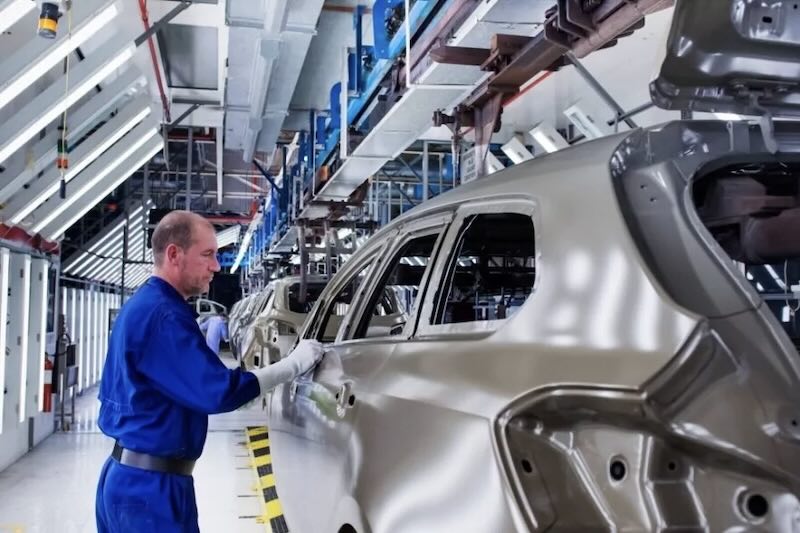Adapting to the Reshaping of the Automobile Industry Chain.
The automobile industry is undergoing a significant transformation, driven by advancements in technology and shifts in consumer preferences. As the World Chamber of Commerce Platform (WCHAM), we recognize the importance of adapting to these changes to ensure a sustainable future for the industry.
Embracing Advanced Supply Chain Management
Advanced supply chain management is pivotal in driving sustainability within the automotive industry. By leveraging cutting-edge technologies and innovative practices, companies can enhance efficiency, reduce waste, and respond more swiftly to market demands12.
Balancing Self-Research and Strategic Partnerships
Original Equipment Manufacturers (OEMs) face a critical decision: to invest in self-research or to form alliances with leading partners. The choice hinges on the desired balance between maintaining control over innovation and leveraging external expertise34.
The Evolving OEM-Supplier Relationship
The push towards electrification and intelligent systems has transformed the relationship between OEMs and suppliers. This evolution is characterized by deeper collaboration and shared goals, as both parties navigate the complexities of new technologies45.
Navigating Industry Changes for Traditional Parts Companies
Traditional auto parts and components companies must adapt to survive. This includes investing in new capabilities, retraining the workforce, and exploring new business models to remain competitive in an industry that is shifting towards electrification and digitalization67.
Strategic Competition in Global Supply Chains
The global automotive supply chain is a battleground for strategic competition. Companies must navigate geopolitical pressures, changing trade policies, and the need for innovation to maintain a competitive edge89.
Here are specific examples of successful supply chain management practices that companies have implemented:
Coca-Cola: Leveraging Data and Technology
Coca-Cola uses advanced data analytics and technology to optimize its supply chain. By analyzing real-time data, they can adjust production, distribution, and inventory levels efficiently1.
Amazon: Innovating with Logistics and Delivery
Amazon’s supply chain success lies in its innovative logistics and delivery network. Their use of robotics, drones, and predictive analytics ensures timely deliveries and efficient inventory management1.
Colgate: Streamlining Operations and Reducing Waste
Colgate focuses on lean manufacturing principles to minimize waste and improve efficiency. By optimizing production processes and reducing excess inventory, they achieve cost savings and sustainability1.
IKEA: Simplifying Design and Packaging
IKEA designs products with flat packaging, reducing transportation costs and storage space. Their efficient supply chain ensures products reach stores quickly and at lower costs1.
Starbucks: Building Relationships and Quality
Starbucks maintains strong relationships with coffee growers, ensuring a steady supply of high-quality beans. Their commitment to ethical sourcing and sustainability enhances their supply chain1.
Zara: Responding to Trends and Demand
Zara’s agile supply chain allows them to respond rapidly to fashion trends. Their “fast fashion” model involves short production cycles, frequent inventory turnover, and close collaboration with suppliers1.
Apple: Creating Value and Loyalty
Apple’s supply chain excellence is evident in its seamless product launches, global distribution, and customer satisfaction. They prioritize quality, innovation, and supplier partnerships1.
These examples demonstrate how companies strategically manage their supply chains to achieve operational efficiency, reduce costs, and enhance customer experiences. Each organization tailors its practices to align with its unique goals and priorities12. As the industry evolves, continuous adaptation and innovation remain essential for supply chain success.
WCHAM’s Reflections and Suggestions
As WCHAM, we advocate for a proactive approach to these industry shifts. We encourage companies to:
- Invest in technology to streamline supply chains.
- Evaluate the benefits of partnerships versus in-house development carefully.
- Foster collaborative relationships that align with long-term strategic goals.
- Embrace change and be willing to pivot business models in response to industry trends.
- Stay informed and agile to navigate the strategic competition effectively.
The automobile industry’s future depends on our collective ability to adapt and innovate. By embracing these principles, we can steer the industry towards a more resilient and dynamic future.



